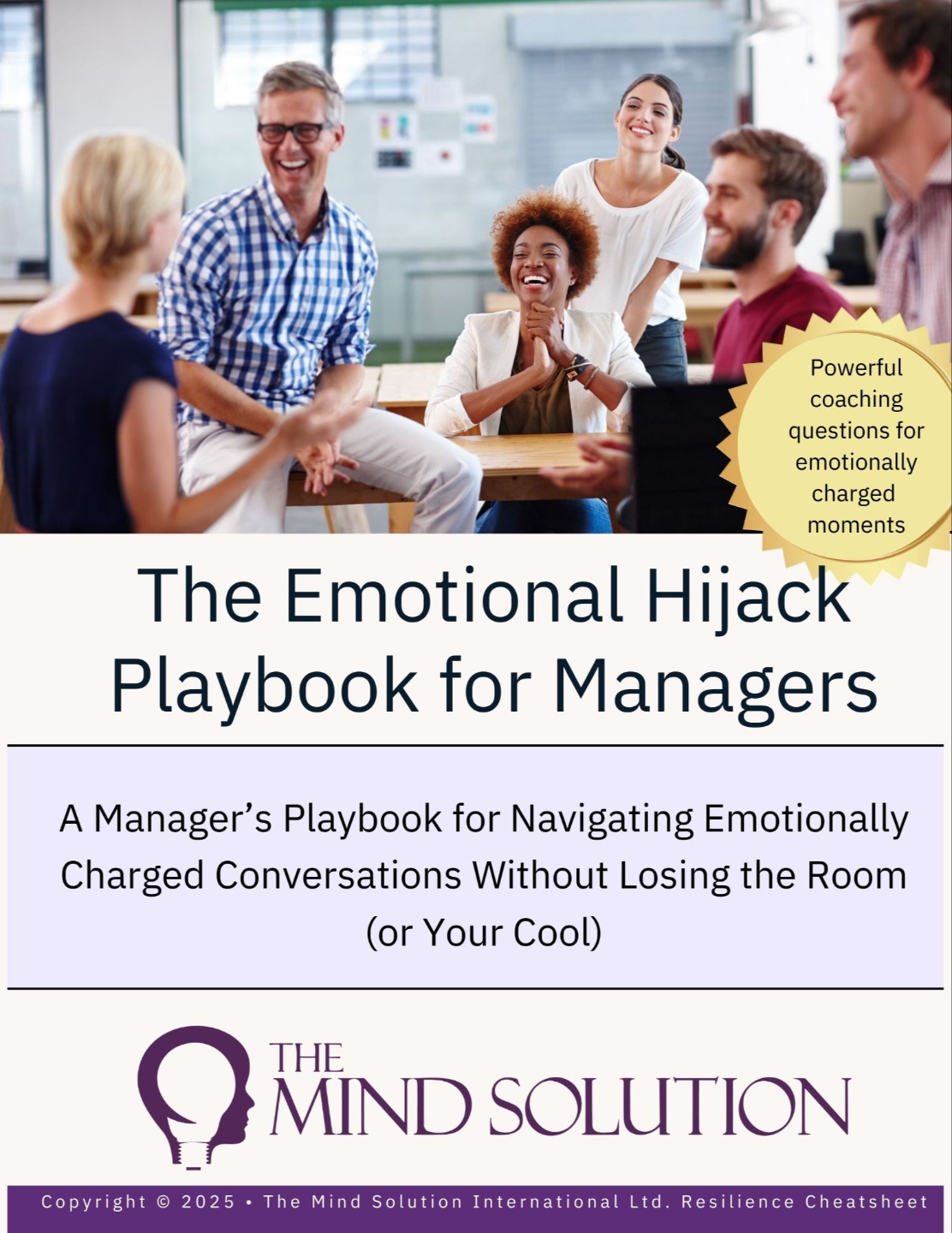How Managers Can Stop Having Difficult Conversations
Mar 27, 2023
Mental Health Conversations Don't Need to be Difficult!
If you were to search the internet for management development training courses, you’d be guaranteed to find plenty out there labelled things like:
-
“How to Have Difficult Conversations”
-
“How to Handle Challenging Conversations at Work”
And while those titles are popular, they’re also misleading.
Because here’s the truth that most training leaves out:
We have no idea what a conversation is going to be like—because it hasn’t happened yet.
What we call “difficult conversations” are often not about the content, but the emotional projection leading up to it. The assumptions we make based on past experience.
The Real Reason Conversations Feel Difficult
Here’s what’s really going on, behind the scenes:
When we anticipate a future conversation, our minds don’t start from scratch.
We go back into the mental archives—pulling up similar past experiences.
-
What was said last time
-
How it made us feel
-
What was the outcome
-
Whether we felt heard, dismissed, or overwhelmed
We replay that event in our minds. And then we do what the brain is wired to do: We project that memory forward and imagine the same scenario happening again.
The problem? The mind and body don’t know the difference between memory and imagination.
So while the conversation hasn’t happened yet, we’ve already primed the nervous system to respond as if it has.
How Survival Mode Shows Up in Managers
When you unconsciously tell your body,
“This conversation will be stressful, awkward, or risky,”
...you trigger the stress response—even before the first word is spoken.
This might show up as:
-
Anticipation or dread
-
Heart racing
-
Tightness in the chest or throat
-
Sweaty palms
-
Shallow breathing
-
A sense of inner resistance or tension
In short: your body is preparing for battle, not connection.
So instead of showing up calm, curious, present, and emotionally intelligent…You show up guarded, braced, or emotionally withdrawn.
What If You Could Stop Having “Difficult Conversations” Altogether?
Here’s the invitation:
What if the conversation isn’t difficult? What if our thinking about it is?
This short video clip from our mental health training for managers explores how emotionally intelligent leaders reframe difficult conversations before they begin.
One manager who, like many others, had previously viewed conversations about mental health as difficult was amazed after attending our mental health training.
“I’ve had conversations with people, and I’ve spoken differently with them… I recognised I’d spoken differently – a subconscious change in myself that I’d never spoken like that before.”
— Sofology Manager
That’s the shift we’re aiming for.
Not communication techniques alone—but an actual state change in how you show up.
The Science Behind Rewiring “Difficult” Conversations
From a neuroscience perspective, this makes perfect sense.
When we rehearse a negative outcome in our minds, the limbic system and amygdala kick into gear. This suppresses activity in the prefrontal cortex—the part of the brain responsible for:
-
Emotional regulation
-
Problem-solving
-
Empathy
-
Verbal fluency
Which means: the very tools we need to have a successful conversation become unavailable.
But when we shift out of survival mode and into presence, we access all of that again.
This is one of the core components of our mental health training for managers.
It’s not just about what to say—it’s about how you feel when you’re saying it.
Emotionally Intelligent Communication Starts Before You Speak
Emotionally intelligent managers don’t just manage conversations; they redefine them.
They:
-
Observe their internal dialogue before walking into a conversation
-
Recognise when their nervous system is activated
-
Use self-awareness tools to regulate their state
-
Lead with openness rather than assumption
-
Stay present instead of projecting the past
This is how “challenging conversations” turn into connected conversations—the kind that build trust instead of breaking it.
Summary
Managers often label conversations as difficult before they happen, based on past experiences and emotional projection. Mental health training for managers helps leaders shift their mindset, regulate their stress response, and lead conversations with empathy, presence, and emotional intelligence, improving workplace wellbeing and psychological safety.
Ready to Equip Your Managers with These Skills?
Communication skills are everything when facilitating great conversations about mental health.
And that starts long before the first word is spoken.
If you want to:
-
Help your managers lead with presence, not pressure
-
Build emotionally intelligent teams
-
Foster psychological safety
-
And replace avoidance with confident connection...
Then our mental health training for managers is the right next step.
💬 Let’s jump on a call and explore how we can support your leaders.
The Emotional Hijack Playbook For Managers
A Manager’s Free Resource for Navigating Emotionally Charged Conversations Without Losing the Room (or Your Cool).
Perfect to use in your next one-to-one.







